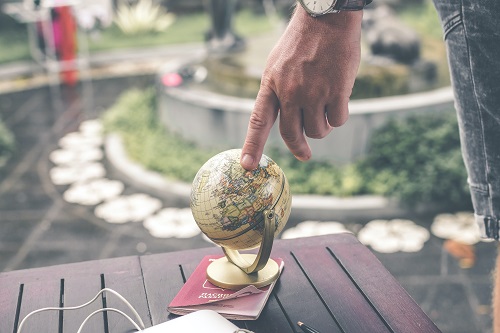
Is changing the world possible?
For those who believe in the possibility of changing the world, I share insights inspired by A great piece by Thomas Friedman of the New York Times. The article is an overview of how we broke the world. In other words, a learning to improve the state of the world. Call it a recipe of how humanity created the conditions that are causing havoc in the world. Specifically, within the short span of the past 40 years. In a hope that we will be able to reverse the malpractices one day. Only when we know very well what caused them in the first place.
A shift in perspective changed the world
In the competition for productivity, the pursuit of globalization, interconnectivity, and dominance, we removed all the buffers and limits. That’s said, safety measures in all forms and activities of life have been shockingly compromised for the sake of material growth. Which could have otherwise protected the world from the successive crises we have been witnessing one after the other.
A race for extremist views and a stream of terrorist attacks have widely and rapidly spread. Causing major fractions to parts of the world if not all. Worth to mention the September 11 attacks, the expansion of monocultural tendencies in Iran and Saudi Arabia, the Mecca siege of 1979, and the Iranian revolution to name a few.
From behind the scenes of the biggest financial crisis
The crash of the financial markets in 2008 did not come out of the bloom. It was originally a follow-up of the eruption of the LTCM hedge fund in 1998. A crisis left untreated at the roots.
As a reactive measure, banks and financial institutions have created multiple financial structures and products to profit from. With no valid reason other than generating money. Taking their cue of immunity from 1998.
Failing to understand the mistakes and treating them. Persisting in seeking success where it does not belong.
They even expected to be bailed out by governments if there was any problem in their business model. All this to the detriment of Main Street, and millions of jobs lost.
Changing the world by shifts in consumption, productivity, and employment
In the race for hyper-productivity and maximum profit, manufacturing of all sorts was outsourced to countries in Asia. Industrial tissue was thus profoundly dismantled in the West of the globe.
As a result, during the Covid-19 pandemic, we do not even have basic drugs like Dafalgan produced in the west. With supply chains halted, we have to ration them among many other essential products we need.
All these also contributed to massive changes in employment in developed countries. From high paying industrial jobs to low paying service sector jobs. Worsening the issue of income inequality, creating social unrest, and contributing to the rise of authoritarian regimes.
Our destructive policies have wrecked the environmental balance. Causing ever frequent natural disasters. Continuing with ignoring issues and problems at root levels and focusing on acceleration and growth.
Learning from our mistakes to change the world
Inspired by nature, let us take the example of an Octopus. Despite having the most complex brains among animals, they are unable to evolve further. They die relatively young and keep editing their IRA. They do not pass their knowledge of the world to their new generations. Thus, new generations simply go through the same cycle of challenges.
That’s to say, we do mistakes as we learn. We learn as we do mistakes. Trying to change the world and evolve without learning from mistakes keep us falling back in the same trap again. Teaching success to new generations without failure and challenges that lie behind each story, does not teach much.
The recipe for causing catastrophes is above. However, the solution to improving the world is available to us all. We can all help individually by learning from our mistakes. Choosing responsible politicians to lead us who continuously learn and apply learning to improve the state of the world.
I am Ahmet Gokay,
Finance and English professor with many years of experience in finance and economics in Europe, the US, and the Middle East. A believer in the power of children education and changing the world by passing the knowledge and experience to younger generations; The leaders of tomorrow. Visit my homepage here.
Or do you have thoughts and insights you would like to share? post your comments below
